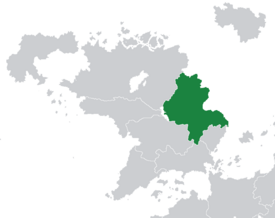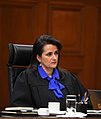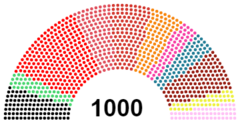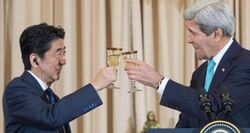Chistovodia: Difference between revisions
No edit summary |
No edit summary |
||
| (16 intermediate revisions by 4 users not shown) | |||
| Line 8: | Line 8: | ||
|image_coat = File:Coat_of_arms_of_Hungary_(1957-1990).svg | |image_coat = File:Coat_of_arms_of_Hungary_(1957-1990).svg | ||
|national_motto = "Пролетарии всех стран, соединяйтесь!" <br> ''"Workers of the world, unite!"'' | |national_motto = "Пролетарии всех стран, соединяйтесь!" <br> ''"Workers of the world, unite!"'' | ||
|national_anthem = [https://www.youtube.com/watch?v= | |national_anthem = [https://www.youtube.com/watch?v=EMQNEsCeUAY The Internationale] | ||
|image_map = File:ChisIIwiki.png | |image_map = File:ChisIIwiki.png | ||
|map_width = 275px | |map_width = 275px | ||
| Line 60: | Line 60: | ||
|area_magnitude = | |area_magnitude = | ||
|area = <!--Major area size (in [[Template:convert]] either km2 or sqmi first)--> | |area = <!--Major area size (in [[Template:convert]] either km2 or sqmi first)--> | ||
|area_km2 = 2, | |area_km2 = 2,781,444 | ||
|area_sq_mi = <!--Area in square mi (requires area_km2)--> | |area_sq_mi = <!--Area in square mi (requires area_km2)--> | ||
|area_footnote = <!--Optional footnote for area--> | |area_footnote = <!--Optional footnote for area--> | ||
| Line 70: | Line 70: | ||
|population_estimate_rank = | |population_estimate_rank = | ||
|population_estimate_year = 2022 | |population_estimate_year = 2022 | ||
|population_density_km2 = | |population_density_km2 = 30.53 | ||
|population_density_sq_mi = | |population_density_sq_mi = | ||
|population_density_rank = | |population_density_rank = | ||
| Line 82: | Line 82: | ||
|Gini_year = 2014 | |Gini_year = 2014 | ||
|HDI = 0.900 | |HDI = 0.900 | ||
|currency = Chistovodian | |currency = Chistovodian zolota | ||
|currency_code = | |currency_code = CYZ | ||
|time_zone = East Asterian Standard Time | |time_zone = East Asterian Standard Time | ||
|date_format = dd-mm-yy | |date_format = dd-mm-yy | ||
| Line 94: | Line 94: | ||
The area that is now Chistovodia was inhabited by multiple native peoples, including the {{wp|Pueblo Nations}} and the {{wp|Sioux}}. Eucleans initially arrived by the beginning of the 16th century. These were mainly Soravian loggers, fur trappers and fisherman who were operating out of [[George Ruset Land]], though the internal areas around [[Lake Mantowic]] were explored by east Euclean traders and navigators around the same time. By 1691 however, Narodyns had founded a major settlement -- what is now Khmelnytskyi. | The area that is now Chistovodia was inhabited by multiple native peoples, including the {{wp|Pueblo Nations}} and the {{wp|Sioux}}. Eucleans initially arrived by the beginning of the 16th century. These were mainly Soravian loggers, fur trappers and fisherman who were operating out of [[George Ruset Land]], though the internal areas around [[Lake Mantowic]] were explored by east Euclean traders and navigators around the same time. By 1691 however, Narodyns had founded a major settlement -- what is now Khmelnytskyi. | ||
Chistovodia remained the key colony of the Soravian Empire up until the [[First Soravian Civil War]]. | Chistovodia remained the key colony of the Soravian Empire up until the [[First Soravian Civil War]]. At the onset of the war, legislators in Khmelnytskyi declared independence for the colony - but had negotiated with [[Eduard Olsov]] to support the [[Seven Province Union]] against the Soravian Empire in exchange for recognition of independence at the end of the war. For much of its early independence history, up until the mid 1920s, Chistovodia was ruled by a military junta led by [[Vadym Babych]]. Babych, initially a progressive, industrialist and modernising ruler eventually deteriorated into a authoritrarian dictator and oversaw the implementation of policies and reforms that prioritised the military; its interdependence and the establishment of an export oriented free-market economy. By the time of the [[Great War (Kylaris)|Great War]] Chistovodia was arguably one of the poorest nations in Asteria Superior and fell into a civil war involving numerous factions. The victors of this civil war were the [[Chistovodian Section of the Workers' International]], who would go on to mould the state on the lines of a Valduvian Model. | ||
In the modern day Chistovodia is a highly developed industrial economy with a large immigrant population. It scores highly in wealth equality, healthcare, life expectancy and government transparency. A member of the [[Community of Nations]] and [[Association for International Socialism]], Chistovodia is also a [[List of countries with nuclear weapons (Kylaris)|nuclear weapons state]]. Chistovodia is also criticised for an overly militaristic diplomatic relationship with neighbouring countries, such as [[Nuxica]]. This stems from the grievances of the historic conflict in the late 1970s. | In the modern day Chistovodia is a highly developed industrial economy with a large immigrant population. It scores highly in wealth equality, healthcare, life expectancy and government transparency. A member of the [[Community of Nations]] and [[Association for International Socialism]], Chistovodia is also a [[List of countries with nuclear weapons (Kylaris)|nuclear weapons state]]. Chistovodia is also criticised for an overly militaristic diplomatic relationship with neighbouring countries, such as [[Nuxica]]. This stems from the grievances of the historic conflict in the late 1970s. | ||
| Line 125: | Line 125: | ||
|alt2= | |alt2= | ||
}} | }} | ||
Chistovodia is a self-defined 'Workers' State', in that as per its constitution the state is constructed along the lines of its workers' councils. It is one of the few countries in the world to be organised along {{wp|socialism|socialist thought}}. As a functioning {{wp|Soviet democracy|council democracy}} that follows the [[ | Chistovodia is a self-defined 'Workers' State', in that as per its constitution the state is constructed along the lines of its workers' councils. It is one of the few countries in the world to be organised along {{wp|socialism|socialist thought}}. As a functioning {{wp|Soviet democracy|council democracy}} that follows the [[Valduvia|Valduvian Model]], its democracy differs from liberal democracies by two main features. Firstly: the system of government is composed of a hierarchy or tier of councils. At the most basic level citizens directly elect local councils, who in turn elect representatives at municipal or regional councils. These councils appoint representatives to state councils who elect the national representatives that convene at the General Congress. Secondly, there is an absence of the {{wp|separation of powers}} found in eastern democracies, with committees of law appointed to each tier of government. Though elections are scheduled and regular; representatives are universally responsible to the voter who can exercise their rights to issue a {{wp|recall election}} to remove unfit representatives. | ||
Chistovodians directly elect a President of the Presidium, who serves as the head of state. The President of the Presidium is authorised to appoint members of the General Congress to fill the seats of his or her Presidium, essentially mirroring the feature of a cabinet in liberal democracies. | Chistovodians directly elect a President of the Presidium, who serves as the head of state. The President of the Presidium is authorised to appoint members of the General Congress to fill the seats of his or her Presidium, essentially mirroring the feature of a cabinet in liberal democracies. | ||
| Line 137: | Line 137: | ||
The sixteen appointed members of the Presidium are subject to dismissal by either the President or by a two-thirds majority in the General Congress. The President is subject to a recall election if a two-thirds majority of the General Congress and the appointed ministers agree; whilst an impeachment is possible by review of conduct by the tiered courts. | The sixteen appointed members of the Presidium are subject to dismissal by either the President or by a two-thirds majority in the General Congress. The President is subject to a recall election if a two-thirds majority of the General Congress and the appointed ministers agree; whilst an impeachment is possible by review of conduct by the tiered courts. | ||
=== Presidium Members === | |||
<gallery class="center" widths="120"> | |||
John_Kerry_official_Secretary_of_State_portrait.jpg|Viktor Martynenko, President of the Presidium</gallery> | |||
<gallery class="center" widths="120"> | |||
File:Joe_Biden_presidential_portrait.jpg|Kazymyr Didyk, Responsible Secretary of Foreign Affairs and Global Emancipation. | |||
Edward Markey, official portrait, 114th Congress.jpg|Stanislaw Yaroshenko, Responsible Secretary of Defence and the Armed Forces. | |||
File:Chrystia_Freeland_MSC_2018_(cropped).jpg|Voctorita Marinescu, Responsible Secretary of State Security and Internal Affairs. | |||
File:Kelly_Ayotte,_Official_Portrait,_112th_Congress_2.jpg|Philomène Baudelaire, Responsible Secretary of Economic Planning, Management and Trade. | |||
File:Senator_Manchin.jpg|Bálint Barnabás, Responsible Secretary of the Environment, Environmental Sustainability and Land Regeneration. | |||
File:Andrew Cuomo by Pat Arnow cropped.jpeg|Salvador Obrero, Responsible Secretary of Urban & Rural Development and Infrastructure. | |||
File:Ministra MargaritaRios.jpg|Sylvana Chiellini, Responsible Secretary of Judicial Affairs. | |||
File:Kirsten_Gillibrand,_official_photo,_116th_Congress.jpg|Zhanna Kramarenko, Responsible Secretary of Commerce, Digital Infrastructure and Finance. | |||
File:Jorge_G._Castaneda_-_World_Economic_Forum_on_Latin_America_2011.jpg|Pavlo Zakharchuk, Responsible Secretary of Agriculture, Forestry and Mining. | |||
File:Ahmed_Hussen_at_the_Toronto_Caribbean_Carnival_-_2017_(36258275322)_(cropped).jpg|Feodosij Stepanov, Responsible Secretary of Health and Disease Prevention and Control. | |||
File:Ben_Carson_official_portrait.jpg|Semen Kharchenko, Responsible Secretary of Education. | |||
File:Secretary_Deb_Haaland,_official_headshot.jpg|Lidiya Slobodyanyuk, Responsible Secretary of Global and Worker Society and Culture. | |||
File:Jennifer_Jermaine_by_Gage_Skidmore.jpg|Elistina Torbiashiova, Responsible Secretary of National Statistics. | |||
File:Maria_do_Rosário_em_setembro_de_2016.jpg|Kseniya Andrijchuk, Responsible Secretary of National Science, Technology and Research. | |||
File:Portrait_Michelle_Bachelet.jpg|Svitlana Loboda, Responsible Secretary of Sport. | |||
File:Jay_Rockefeller_official_photo.jpg|Kacper Tomaśko, Responsible Secretary of Light and Heavy Industry.</gallery> | |||
{{Sidebar | {{Sidebar | ||
| Line 197: | Line 218: | ||
[[Category:Kylaris]] | [[Category:Kylaris]] | ||
[[Category:Chistovodia]] | |||
[[Category:Countries (Kylaris)]] | |||
Latest revision as of 10:47, 28 September 2023
This article is incomplete because it is pending further input from participants, or it is a work-in-progress by one author. Please comment on this article's talk page to share your input, comments and questions. Note: To contribute to this article, you may need to seek help from the author(s) of this page. |
Chistovodian Workers' State Робоча Держава Чистовод'я Roboča Deržava Čystovodja | |
|---|---|
| Motto: "Пролетарии всех стран, соединяйтесь!" "Workers of the world, unite!" | |
| Anthem: The Internationale | |
 Chistovodia (dark green) in Asteria Superior (grey) | |
| Capital | Misto Myru |
| Largest city | Khmelnytskyi |
| Official languages | Soravian |
| Ethnic groups | Chistovodians ~ |
| Demonym(s) | Chistovodian |
| Government | Federal semi-presidential council republic |
List
| |
• President of the Presidium | Viktor Martynenko |
• Premier | Angelika Cuvillier |
| Legislature | General Congress |
| History | |
• Colonisation | 1691 |
• Soravian Civil War | 1856 |
• Independence | 1860 |
• Revolution | 1931 |
| Area | |
• | 2,781,444 km2 (1,073,922 sq mi) |
| Population | |
• 2022 estimate | 84,932,446 |
• Density | 30.53/km2 (79.1/sq mi) |
| GDP (PPP) | 2015 estimate |
• Total | $2.700tn. |
• Per capita | $31,800 |
| Gini (2014) | 22.1 low |
| HDI | 0.900 very high |
| Currency | Chistovodian zolota (CYZ) |
| Time zone | East Asterian Standard Time |
| Date format | dd-mm-yy |
| Driving side | right |
Chistovodia (Soravian: Чистово́д'я, tr. Čystovodja), officially the Chistovodian Workers' State (Soravian: Робоча Держава Чистовод'я, tr. Roboča Deržava Čystovodja) is a sovereign state in Asteria Superior. It borders Cassier to the north and Rizealand and Nuxica to the west, as well as having maritime borders with Soravia and Gaullica. With a total area of 2,399,981 km2 and a population of over 61 million people, Chistovodia is one of the larger states in Asteria Superior. Its capital is the planned, central and coastal city of Misto Myru, whilst the largest and first founded city is Khmelnytskyi on the northern coast.
The area that is now Chistovodia was inhabited by multiple native peoples, including the Pueblo Nations and the Sioux. Eucleans initially arrived by the beginning of the 16th century. These were mainly Soravian loggers, fur trappers and fisherman who were operating out of George Ruset Land, though the internal areas around Lake Mantowic were explored by east Euclean traders and navigators around the same time. By 1691 however, Narodyns had founded a major settlement -- what is now Khmelnytskyi.
Chistovodia remained the key colony of the Soravian Empire up until the First Soravian Civil War. At the onset of the war, legislators in Khmelnytskyi declared independence for the colony - but had negotiated with Eduard Olsov to support the Seven Province Union against the Soravian Empire in exchange for recognition of independence at the end of the war. For much of its early independence history, up until the mid 1920s, Chistovodia was ruled by a military junta led by Vadym Babych. Babych, initially a progressive, industrialist and modernising ruler eventually deteriorated into a authoritrarian dictator and oversaw the implementation of policies and reforms that prioritised the military; its interdependence and the establishment of an export oriented free-market economy. By the time of the Great War Chistovodia was arguably one of the poorest nations in Asteria Superior and fell into a civil war involving numerous factions. The victors of this civil war were the Chistovodian Section of the Workers' International, who would go on to mould the state on the lines of a Valduvian Model.
In the modern day Chistovodia is a highly developed industrial economy with a large immigrant population. It scores highly in wealth equality, healthcare, life expectancy and government transparency. A member of the Community of Nations and Association for International Socialism, Chistovodia is also a nuclear weapons state. Chistovodia is also criticised for an overly militaristic diplomatic relationship with neighbouring countries, such as Nuxica. This stems from the grievances of the historic conflict in the late 1970s.
Etymology
History
Pre-history
Native Asterian settlements
Euclean colonisation
Independence from Soravia
Babych's Republic
Chistovodian Civil War
Establishment of Council Chistovodia
War with Nuxica
Geography
Climate
Environment
Politics
Government
Chistovodia is a self-defined 'Workers' State', in that as per its constitution the state is constructed along the lines of its workers' councils. It is one of the few countries in the world to be organised along socialist thought. As a functioning council democracy that follows the Valduvian Model, its democracy differs from liberal democracies by two main features. Firstly: the system of government is composed of a hierarchy or tier of councils. At the most basic level citizens directly elect local councils, who in turn elect representatives at municipal or regional councils. These councils appoint representatives to state councils who elect the national representatives that convene at the General Congress. Secondly, there is an absence of the separation of powers found in eastern democracies, with committees of law appointed to each tier of government. Though elections are scheduled and regular; representatives are universally responsible to the voter who can exercise their rights to issue a recall election to remove unfit representatives.
Chistovodians directly elect a President of the Presidium, who serves as the head of state. The President of the Presidium is authorised to appoint members of the General Congress to fill the seats of his or her Presidium, essentially mirroring the feature of a cabinet in liberal democracies.
As per the the constitution political parties are banned in Chistovodia, owing to the "development of factionalism, tribalism and stagnation in government" and instead there is a singular "movement" permitted by the government. This is the Chistovodian Section of the Workers' International; and though functionally a party, is regarded as a "societal movement". Whilst many individuals outside of the country may perceive it to operate as a political party; its internal factionalism ranges from hard-line Nemtsovites to democratic socialists and from Tretyakists to anarchists.
Branches of Government
The Presidium serves as the executive authority of Chistovodia. It is composed of sixteen appointed Presidium-Ministers, who oversee ministries such as defence, foreign affairs and the interior, and the seventeenth directly elected 'President of the Presidium', who also serves as the President of the Nation. The sixteen appointed Presidium-Ministers are appointed by the President and are confirmed by the General Congress. They serve concurrent terms with the Presidium's President; who is permitted three four year terms but are not subject to term limits themselves. A member of the Presidium may serve throughout the entirety of the twelve years of a President; and the succeeding holder of the office could appoint the same individual again.
In its semi-presidential system, the President of the Presidium is a particularly powerful role with the capability to table discussions in both the executive and the legislative. Presidents also serve as the Commander-in-Chief of the Armed Forces.
The sixteen appointed members of the Presidium are subject to dismissal by either the President or by a two-thirds majority in the General Congress. The President is subject to a recall election if a two-thirds majority of the General Congress and the appointed ministers agree; whilst an impeachment is possible by review of conduct by the tiered courts.
Presidium Members
 |
|
Government (1000) |
The General Congress is a unicameral legislature and Chistovodia's highest legislative authority. It is responsible for the drafting, discussion and passing of legislation. Serving the function of the national legislature, the Congress is made up of representatives from state councils; who are appointed by the councils and confirmed by the voting populace.
The General Congress is composed of 1000 congresspersons, all officially part of the same 'movement' - the Chistovodian Section of the Workers' International. Congresspersons are not term limited and serve terms of three years. During these periods they may be subject to recall elections by the electorate if their conduct is deemed unfit.
Due to the fact that political parties are banned in Chistovodia only individuals affiliated with the Chistovodian Section of the Workers' International may be elected to the body. Governments, therefore, have always been formed by the CSWI. However, the Congress is subject to intense caucusing and 'factional alliances', with the CSWI label representing views from anarchists to market socialists.
To lead the sessions of the Congress a Premier is appointed by the Presidium and is confirmed by the congresspersons. The Premier serves what has been described as an "intermediary" functions of presenting pieces of legislation the Presidium has wished to discuss and presenting bills to the presidium that the Congress wishes passed. Other duties include "leading the Congress" and "tabling important discussions". Chistovodia's constitution invests in the Premier the power to invoke a recall election on the President, and thus the Presidium, if the Congress passes such a motion with a two thirds majority.
Foreign Relations
Chistovodia is an important Asterian regional power, exercising its influence both continentally and internationally. It maintains close relations with fellow socialist states such as: Dezevau, Kirenia and Maracao. Maracao's relationship with Chistovodia is a long-standing one, with both nations cooperating on achieving 'socialist ideals'. The Arucian island nation also serves as the hosting nation for numerous Chistovodian military bases.
In the years after the Chistovodian-Marchenian War, Chistovodian foreign policy originally entered a state of what was called 'dormancy'. Since the revolution, Chistovodia had often acted in a way that was assertive and head-strong as a "means to survive", but the losses incurred by the Chistovodian-Marchenian War "humbled" its political elite. Yet, as of recent, Chistovodia has been regarded by some in the Asterias to be returning to its "pariah roots".
Chistovodia is a large contributor to humanitarian aid and global development funds, yet has been criticised for maintaining contact with socialist insurgency groups across the developing world. Efforts to change the constitution's requirement for "supporting the global struggle" met harsh resistance from most members of the General Congress.
In spite of being the self declared 'spectre of socialism' in the Asterias, Chistovodian foreign policy is often regarded as being "quite pragmatic" outside of the immediate Asterias. It is known for its tumultuous relations with Soravia and, often criticised, for its close associations with Xiaodong.
Chistovodia is a member of the Community of Nations and the Association for International Socialism, whilst being an observer of numerous organisations -- including the International Forum for Developing States.






















